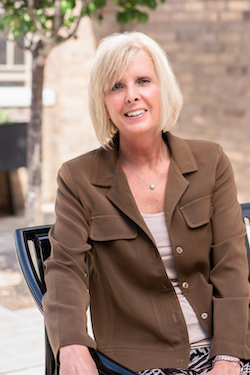
By Grace Juarez, Reporter, Lufkin Daily News, see the original story here.
Melanie Taylor has taken the helm as CEO of Burke after Susan Rushing retired last week.
Rushing left Burke with 39 years of service to Burke, with 29 as CEO.
“It marks the end of my career at Burke, but it doesn’t end my care and commitment for the mission of Burke, the people of Burke and the people that we serve,” Rushing said. “It’s a great way to look back and see how far we’ve come, and I realize while I’m being celebrated, I didn’t do this by myself.”
Taylor enters the position with 32 years of experience. She worked with Rushing for a year as deputy CEO in preparation for the transfer. However, Taylor said she knew and worked alongside Rushing for many years before.
“She has taught me how to care for people and how to always put our employees first and our consumers first,” Taylor said. “When you do that, even if something we try doesn’t work out, as long as we have our mission first and foremost — working together to improve lives — we can’t mess up.”
Individuals like Rushing, Murphy George, and Ward and Annabelle Burke have created an amazing legacy that is both challenging and inspiring to follow, Taylor said.
Over the years Taylor has spent at Burke, she has witnessed many changes. When she first arrived, Burke was very small, she said. As public sentiment toward mental health began to change, Burke was able to expand its services thanks to more funding.
In 2012 Burke was able to participate in the 1115 Medicaid Transformation Waiver, a program Taylor said resulted in probably one of the biggest increases to Burke’s funding.
“We have benefited from that funding and have been able to increase the services we provide and increase the education we provide to not only the consumers, but to the families,” she said.
One of the things that brought her into this line of work was a desire to understand her grandmother, who suffered from paranoid schizophrenia. Taylor’s grandmother stayed at the Rusk State Hospital, and she and her family would visit her frequently over the weekend.
As time passed, Taylor began to notice that her grandmother acted differently around her and the family than she did around strangers like Taylor’s friends.
“When I would walk in with one of my friends, she would be the normal grandmother like everybody else had,” Taylor said. “I would think, how could you turn this off, and it would make me mad.
“When I started working here was the first time, I truly understood that it wasn’t that she was turning things on and off, it was because she didn’t trust those folks.”
Taylor was inspired to be an advocate for family education, teaching people what they need to know and understand about a mental illness.
Taylor has a bachelor’s degree in rehabilitation. She started out working in direct care with individuals with intellectual disability and mental illness. After several years, she became interested in the human relations aspect of Burke and earned a master’s degree in business.
She is currently working on a second master’s degree from Texas A&M in public management.
Since Burke has been in a time of rapid growth, Taylor plans on focusing on where the center is today and how to ensure that it is the provider of choice for consumers and the employer of choice for employees.
“That’s going to take looking at policies and procedures, going back through and making sure we really are still putting our people first,” she said. “You can do that once you get past that rapid growth part and start focusing on the quality again.”
She also plans on focusing efforts to increase Mental Health First Aid training, an eight-hour course giving people the skills to help someone who is experiencing a mental health issue, learning risk factors and other things about them.
She said she hopes to bring this training to schools because she has found studies that suggest children in schools are more likely to speak up to friends rather than adults.
“I really want to focus on getting that training provided by Burke into our school systems in the future,” she said. “I think it’s very, very important.”



